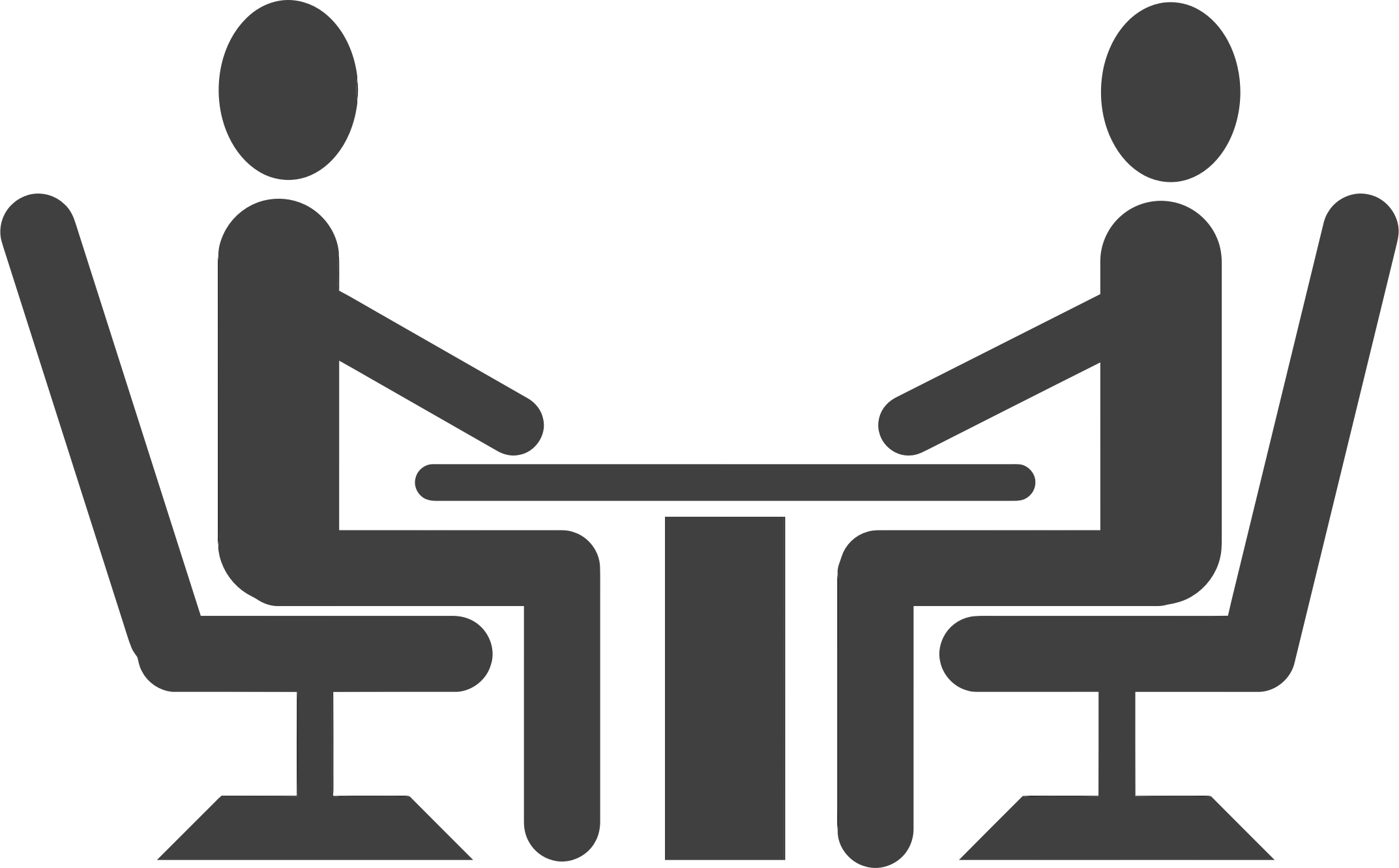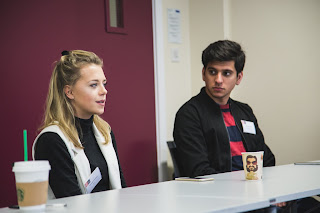Interviews can be face to face, telephone, skype or video. Emma Baker, the Year in Business Careers consultant is also available to conduct 1:1 sessions with all Year in Business students to prepare for such interviews.
The Careers service provides comprehensive material & videos to help students prepare for such interviews https://www.royalholloway.ac.uk/careers/applyforjobs/interviews.aspx

Some important points to consider from the Careers' service website include:
1. Preparation before the interview is key:
> Research the Company/ role you have applied for (website/ contacts in the organisation)
> Practice with someone from the Careers Service.
 |
| Students practicing STAR examples at the Call back afternoon |
2. The most common type of interview for placements are "competence based".
> Employers decide the key competencies (skills) for success in the role - eg teamwork, leadership, problem solving, innovation - and they explore whether the interviewee has those skills.
Examples of such questions are:
> Teamwork./ interpersonal skills: "Describe a situation where you had to deal with someone who didn't like you. How did you handle it?"
> Prioritising : "Describe a situation in which a number of things had to be done at the same time. How did you handle it? What was the result?"
> Adaptability and initiative : "Describe a situation when you have taught yourself a new skill in order to complete a task."
> Proplem solving: Can you give an example of a situation in which you have had to analyse complex information in order to make a decision? How did you approach it?"
More questions are available for Royal Holloway students on the Careers moodle page https://www.royalholloway.ac.uk/careers/moodle/moodle.aspx
The standard way of structuring a response is for students to use the STAR approach (as taught in the Employability module)
- Outline the Situation - the background.
- Say what the Task was that you had to accomplish.
- List your Actions.
- Reveal the Result - what happened as a result of what you did.
> Employers may ask strength based questions where they explore the students' innate strengths to understand how they will perform in the role. Questions may include:
What do you like doing? What things do you find easy to learn? What things are left on your to-do list?
> The interviewer may give a business case to analyse and discuss and will be looking to see how you discuss/ defend your ideas while also listening to other thoughts.
4. Telephone interviews are often used as the first stage before face to face interviews and have some special areas to consider.
> Use your voice to engage and show enthusiasm.
> Speak clearly : use brief notes to make sure you cover all the points you want and make sure you pause to allow the interviewer to interject.
> Choose a location where you won't be disturbed and if calling from a mobile make sure the reception is good.
5. Skype and video interviews are becoming more common and again require practice / preparation if the student is to excel.
Skype allows you to be interviewed real time whilst video interviews allow you to record your answers and send them to the interviewer. You will usually receive the employer's questions when you log on. Some may let you re record your answers but many will want you to do it in one take.
> Practice being on camera and using the technology.
> Find a place where you will be undisturbed : check the background is neutral/ clutter free.
> Always answer to the camera to give the impression of eye contact.
 |
| Emma Baker, Career Consultant is available for 1:1s with students |
Detailed below are examples of recent interview questions from one of our Year in Business students.
During an interview for E.on Commercial Business Analyst (New Business) role:
They started
off with a motivational question : why this scheme at E.on?.
Then:
What issues (including customer service) do you think the energy
industry faces in the future?
Do you know e.on's competitors and what they do?
Tell me about a time when you had to adapt to an unexpected
change.
Tell me about a time when you had to change your ways to be
successful.
Tell me about a time where you went out of your way to help a
customer or team mate.
Give a brief introduction to yourself. (1 minute answer)
They then asked a motivational question: why audit? (2 mins) and why Grant Thornton? (2 mins)
Tell me about a time where you took initiative using the STAR
format. (2 mins)
Tell me about a time where you took ownership and responsibility
for an activity or project using STAR. (2 mins)
Write about a time where you had to adapt to an unexpected change.
(1000 characters, 15 mins)
Thank you to the student who shared these questions with us.

No comments:
Post a Comment
Note: only a member of this blog may post a comment.